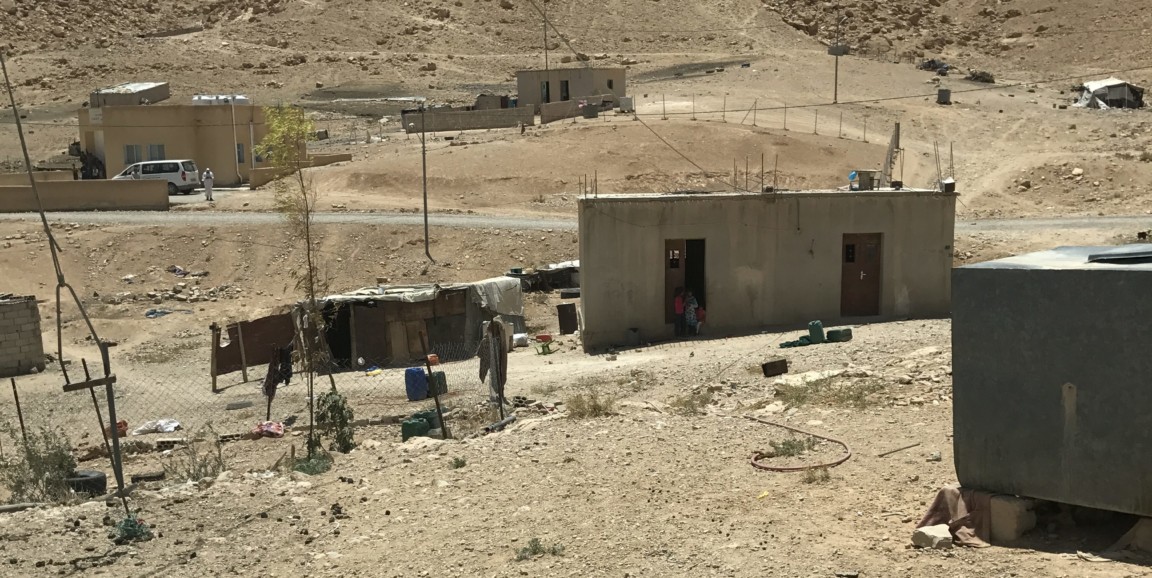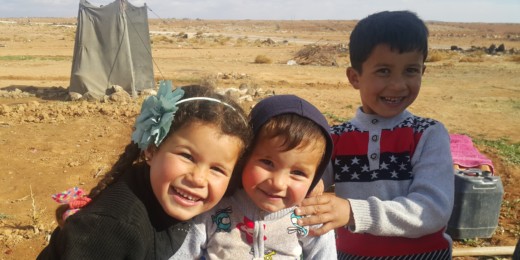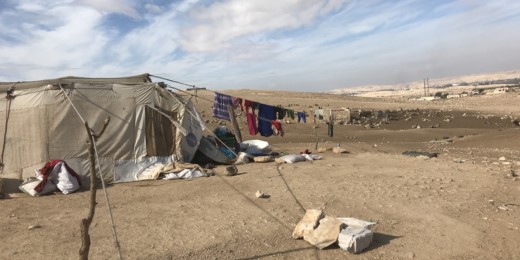Odai, 46, is a Syrian refugee living in Mafraq, a city in Jordan about 8 kilometers away from the Syrian border. Before coming here, he owned four homes, three factories, and lived comfortably with his family. When war hit his hometown, sales plummeted and his factories were bombed.
Today, having once owned multimillion dollar companies, he resides in one room in a dilapidated building along with a Jordanian family. His wife and six children sleep on three mattresses on the floor at night, before they’re stacked on top of each other and the bedroom is modified into a living room/kitchen during the day. Odai and his children haven’t been able to find jobs, and they rely on money provided by the UN Refugee Agency each month. Truthfully, the money doesn’t provide the basic necessities, and they owe the Jordanian family with whom they reside three years worth of rent.
Odai told me:
You know what the hardest thing about being a refugee is? Loss of identity. Today, I am just known as a Syrian refugee. I am not a powerful businessman. I am not a millionaire. I’m not even really a human who’s capable of contributing to society. I am a statistic— a grantee of some fund or another by some NGO or agency. I am a recipient of aid, but I don’t want aid. I want to create my own opportunities, just like I did in Syria.
Odai’s story is powerful and poignant but it is not unique.
A sentiment I hear echoed every day among the Syrian refugee community here is a detestation yet reluctant appreciation of aid that’s provided to them for free. What they seek and deserve, instead, are tangible opportunities by which they’re able to guarantee their own needs and provide for their own families, much like they used to do in Syria. Just like all of us at Stanford continue to do each day.
In thinking about the role of our university in the overwhelming and worsening global displacement crisis, our project is now focused on identifying opportunities that will empower — and not just help — Syrian refugees.
That said, our team is now focused on two core areas: to enhance mental health amongst refugees, by which the clinical, adaptive techniques are taught by refugees themselves, and to help teach technical, marketable skills to refugees that would enable them to find jobs and provide for themselves. Our role as an academic university is to leverage the technical skills we have to empower, humanize, and hear refugees when they speak of their needs and wants.
Laila Soudi is the project lead for the Stanford Refugee Research Project. Originally from Syria, Laila has been working with refugee populations across Europe and the Middle East. This piece is part of a series called "Life on the border" on her trip to the Jordan-Syria and Lebanon-Syria borders.
Photo courtesy of Laila Soudi






